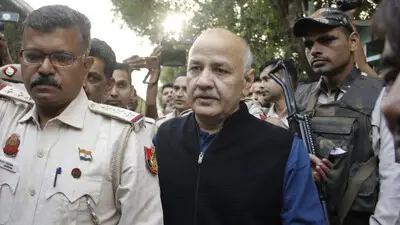Recommended Stories
During the meeting, Home Ministry officials led by Home Secretary R K Singh will try to explain the scope and functions of the National Counter Terrorism Centre and make it clear that the proposed anti-terror hub will not infringe on the states` power.
However, the meeting is unlikely to cut any ice as non- Congress chief ministers, who strongly objected to setting up of NCTC - a brain-child of Home Minister P Chidambaram -- have been demanding discussions on the issue at the political level.
Over a dozen chief ministers have opposed the creation of NCTC on the ground that it would hurt the federal structure of the country.
Odisha Chief Minister Naveen Patnaik and Tamil Nadu Chief Minister J Jayalalitha had asked Prime Minister Manmohan Singh to convene a meeting of chief ministers to discuss the issue.
In all probability, NCTC will be the top agenda at the scheduled meeting of chief ministers to be held here on April 16 if no headway is made in tomorrow`s meeting.
In the wake of strong protests by non-Congress chief ministers, the Centre has put on hold the operationalisation of the NCTC from March 1 and decided to discuss with the state governments before going ahead with the plan.
Home Ministry officials are expecting participation of all states in the meeting. However, it is to be seen whether non-Congress-ruled states send their representatives, considering their objection to official level meeting.
In his letter to 10 chief ministers, Home Minister P Chidambaram had assured that the "next steps" on NCTC would be taken only after the meeting of top officials of the states.
The Home Ministry officials are expected to allay the apprehensions of the states which said empowering NCTC with Section 43 (A) of the Unlawful Activities (Prevention) Act would infringe on the state`s powers. Section 43(A) of UA(P)A gives an officer power to arrest and search.
Chidambaram in his letter had said the powers conferred under Section 43 (A) of the UA(P) Act must be read with the duty under Section 43 (B) to produce the person or article without unnecessary delay before the nearest police station (which will be under the state government).
He also said the SHO of the police station will take further action in accordance with the provisions of the CrPC.
Patnaik, who spearheaded the protests on the ground that it would erode states` powers, in his third letter on NCTC to Prime Minister Manmohan Singh, had opposed the meeting of officials.
"It is imperative that instead of a meeting chaired by the Union Home Secretary, an immediate meeting of chief ministers may be called by you to address the concerns of the states on this very urgent matter regarding the security of the nation," he told the prime minister.
Jayalalitha and Janata Dal-U, which rules Bihar, had also expressed similar sentiments.
The crucial meeting was originally scheduled on March 9 but postponed to March 12 following requests from several states which had conveyed their inability to attend the meeting due to Holi festival, short notice and pre-scheduled engagements.












